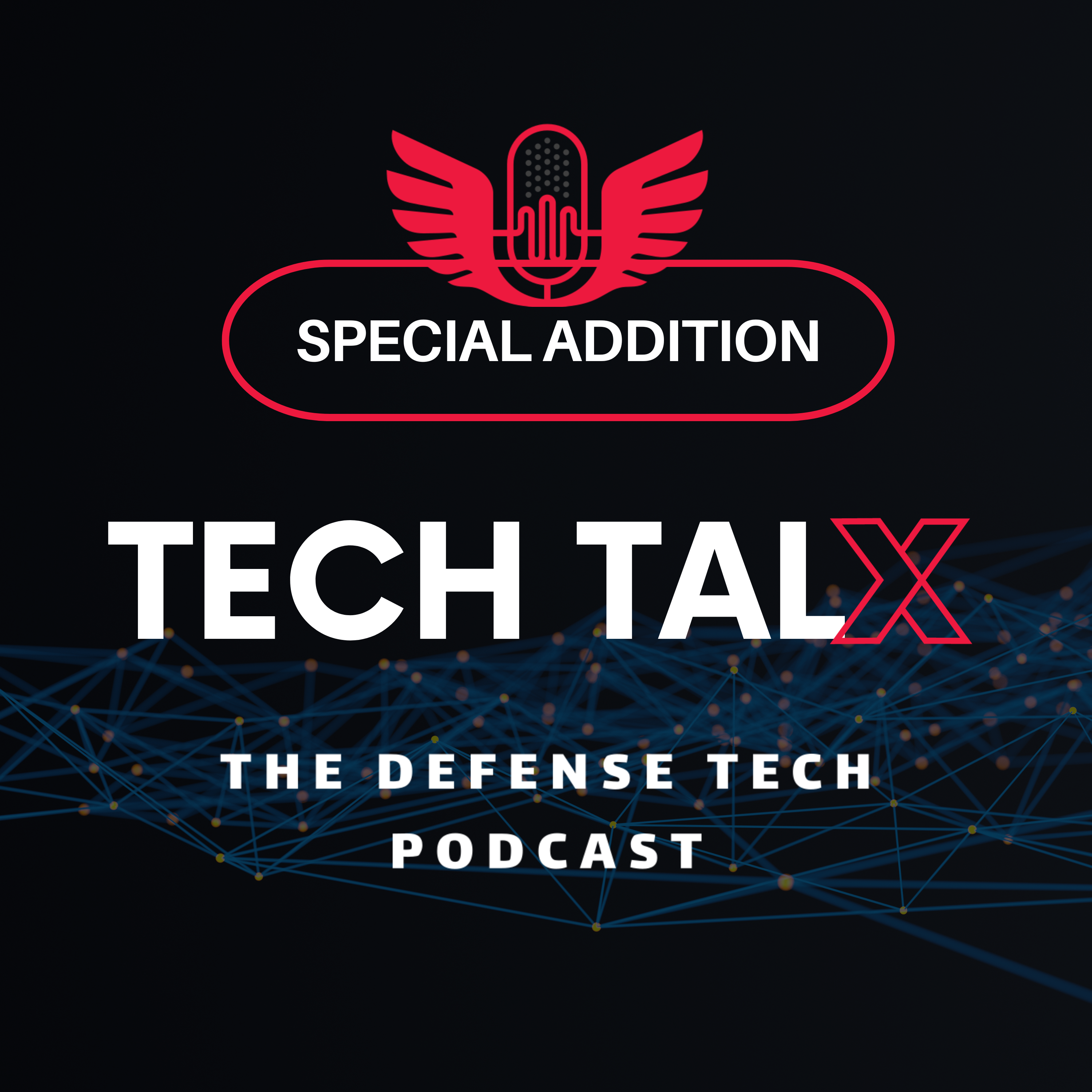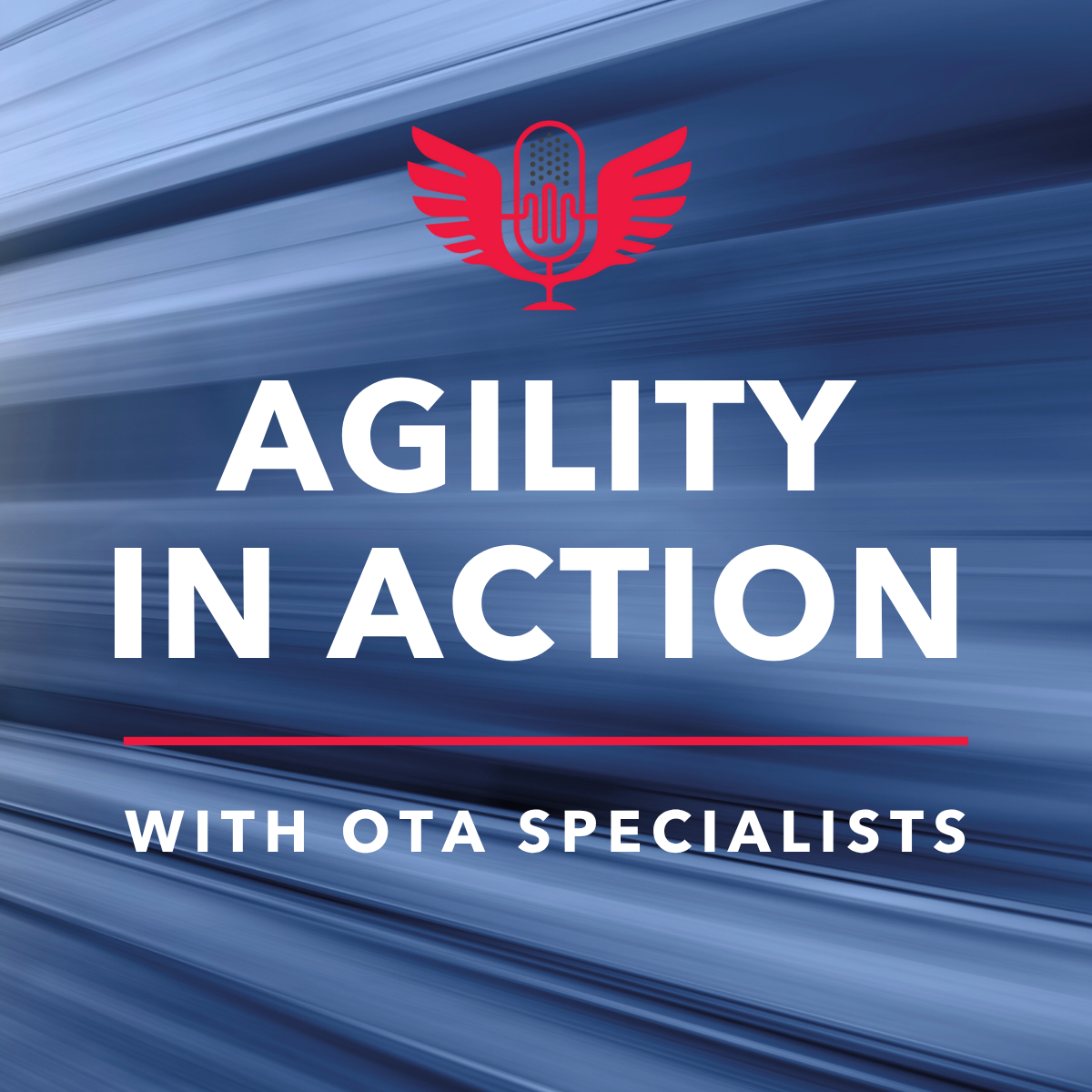Episode Transcript
[00:00:00] Hello again and welcome back to the Defense Tech Podcast. We have lots of new listeners in our community, so I thought I'd do a special episode to reintroduce the podcast. I figured a few of you may be wondering what or who is nstexcel and what do they have to do with defence tech?
[00:00:17] You may have seen an episode or seen our logo, but don't know who NSTEXL is.
[00:00:22] Nstexl is an OTA Consortium Manager that is on a mission to revolutionize government innovation.
[00:00:28] We partner with various government offices to manage OTA vehicles to accelerate prototype production.
[00:00:35] Currently, we support the Strategic and Spectrum Missions Advanced Resilient Systems, AKA SMARTS OTA sponsored by Naval Surface Warfare Center, Crane Division and the Space Enterprise Consortium, or spec ota, managed by Space Systems Command. Through these agreement vehicles, we have managed the prototype development for some of the top technological advancements within the Department of Defense today.
[00:00:59] These projects are often creative and have far reaching impacts. Programs of note include java, a hypersonic design improvement initiative Microelectronics Commons, a program devoted to the establishment of a domestic infrastructure for microelectronic innovation in the US and forge C2, a multi phase effort to develop and integrate missile warning and tracking for US space defense.
[00:01:23] NSTExcel is a passionate team of hard workers who are dedicated to rethinking the way that government innovates.
[00:01:29] There is so much potential for positive change when we think outside of the box of what's always been done and explore the art of the possible.
[00:01:36] Our team executes on this vision by pushing the boundaries of traditional government contracting to deliver the best solutions to the DoD without wasted time or money.
[00:01:45] This is always with the end goal of delivering top tier technology to the US Warfighter.
[00:01:51] Now I want to take a second to explain a bit about OTAs and why we talk about them so much.
[00:01:56] As I mentioned before, we are an OTA Consortium manager. But why? What is so special about OTAs?
[00:02:03] Well, a lot of things. For some context, defense acquisition has a deep and complicated history.
[00:02:10] The evolution of US Military acquisition is deeply intertwined with the nation's legislative history and wartime demands.
[00:02:17] After World War II, the Armed Services Procurement act of 1947 laid the foundation for a unified approach to defense contracting, aiming to bring consistency and accountability to the acquisition process.
[00:02:31] And then came the Federal Acquisition Regulation, or the far, which is a primary set of rules used by the US Federal government for purchasing goods and services or, as we know it, government partnering with industry organizations to obtain technology.
[00:02:46] It was officially established in 1984 under the Office of Federal Procurement Policy act of 1974, and it finally became effective in 1984.
[00:02:56] The goal of creating the FAR was to standardize and streamline federal procurement across civilian and defense agencies, creating a single unified regulation for contracting, which it did.
[00:03:08] But as technology innovation soared through the late 19th and early 20th centuries, acquisition needs evolved and inefficiencies in the FAR process became apparent. And that's where the other transaction authority comes in.
[00:03:22] OTAs are modern contracting solutions that are flexible and efficient, allowing for unlimited modifications and reducing barriers to entry for small organizations like excessive administrative tasks or overhead fees.
[00:03:36] There are myriad benefits to using OTAs, both for the government and for industry partners, making them a perfect fit for today's critical DoD needs.
[00:03:45] You will be hearing much more about that in the season, so stay tuned.
[00:03:52] So now that you have some context and understanding of our mission, let's talk about the Defense Tech Podcast so I started this podcast back in 2023 with the objective of making defense technology accessible and understandable for all.
[00:04:06] I figured I was the best person to do it considering my total lack of knowledge in defense technology or government contracting. If I'm being honest, little to no knowledge about the inner workings of the DOD as a whole.
[00:04:20] So if I could conduct these critical conversations in a way that I could understand them, I knew that the audience would be able to as well.
[00:04:27] And I hope that that has been the case.
[00:04:31] Over three seasons and some additional episodes, I've met with some of the smartest folks who are in the industry, and though it can be challenging to understand to an outsider, I understand how crucial it is that we are having these conversations to begin with.
[00:04:47] Hearing from the best of the best on what is on the front line of US security efforts is crucial to every taxpayer.
[00:04:55] So far on the Defense Tech Podcast, I've been motivated and inspired by all the innovators that I've talked to. From members who are working on game changing projects for the DoD, to subject matter experts in the acquisition space who have helped us to learn so much about the intricacies of the contracting world.
[00:05:13] There have been a wide range of topics that we've covered, from microelectronics, innovation and workforce development to contracting efforts in space defense.
[00:05:24] And there is much more where those come from.
[00:05:27] I want to note that throughout all our conversations two main themes have presented themselves to me.
[00:05:33] First is the criticality of the work being done in the defense tech space.
[00:05:39] I know contracting seems like a niche theme and topic, and some of these things can get a little over the head, but they really are important for everyone to hear about because they affect all of us.
[00:05:51] They affect us security.
[00:05:53] And the second theme I noticed is the collaboration necessary to achieve this mission. It is abundantly clear to me that as cliche as it may sound, the only way to succeed in our mission is to collaborate, putting our minds and our capabilities together to create a stronger force.
[00:06:12] So much of what we do here at nstexcel involves collaboration.
[00:06:16] From industry networking events to government run Q and A sessions, to unique teaming opportunities, NSTXcel is always finding new ways to bring people together.
[00:06:26] At the end of the day, we all want the same to protect and secure our sacred country and to give our warfighters the best shot at success.
[00:06:35] And that's what the Defense Tech Podcast is all about.
[00:06:38] Coming together to share what we know and combining our knowledge to find a way forward.
[00:06:43] And on that note, I can't wait for you all to hear the conversations we're going to have this coming season.
[00:06:49] Season four is going to be jam packed with exclusive insights from top leaders in the industry, including experts in contracting and acquisitions, as well as key government leaders who are on the front lines of tech acquisition.
[00:07:02] As a final note, if you are a government leader or an NSTXL member and are interested in sharing your perspective on the podcast, you can fill out an interest form with the link in the episode Description I want to thank you so much for being a part of the nstexcel community and I'll see you soon with more exciting episodes.


